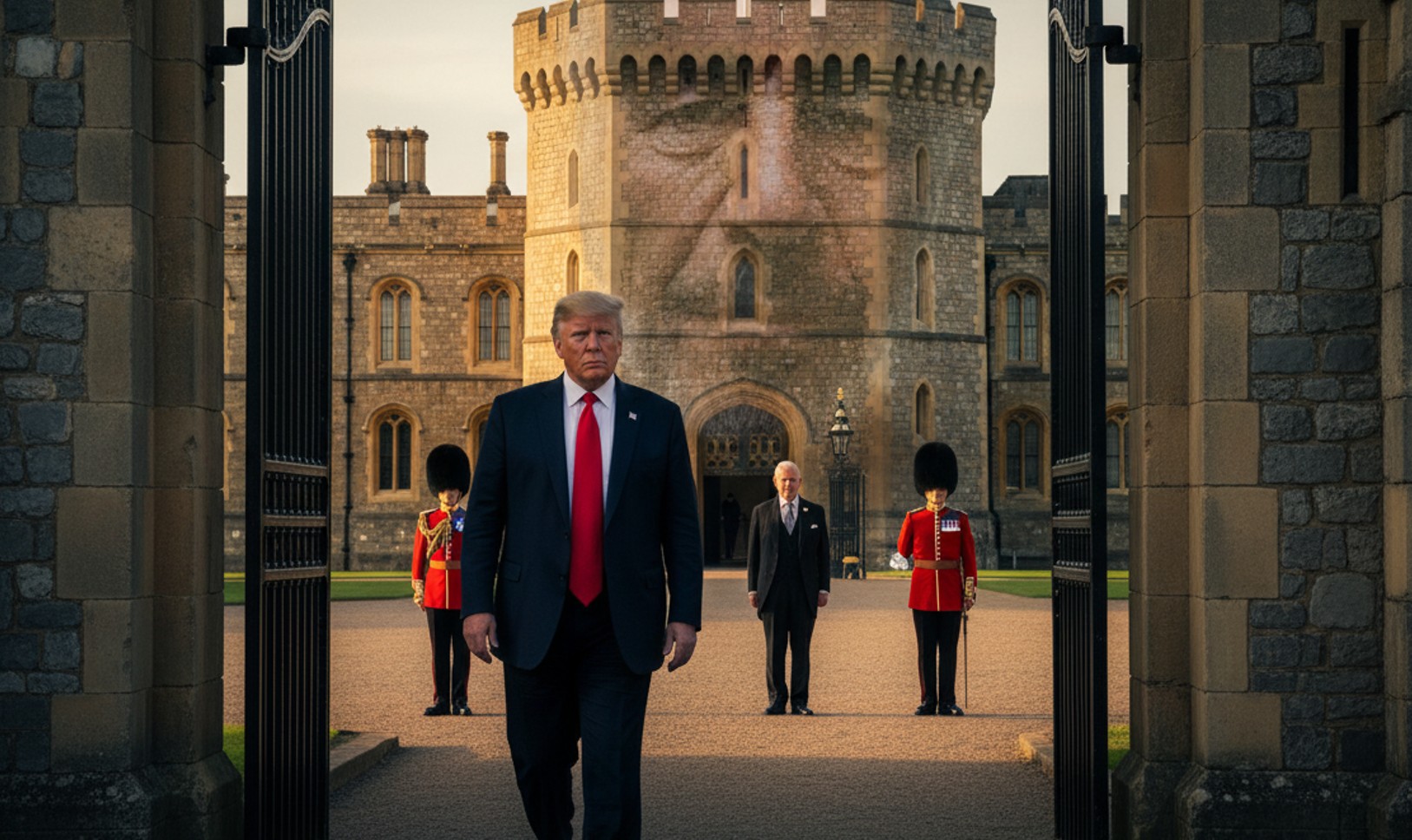
When Donald Trump arrives at Windsor Castle this week for his unprecedented second state visit to Britain, the pageantry will be carefully orchestrated. Carriage rides, state banquets, Red Arrows flyovers — the whole royal toolkit will be deployed.
Yet the grandeur cannot obscure the curious and combustible backdrop: Jeffrey Epstein’s ghost, once again, threatens to intrude on both British politics and Trump’s image abroad.
The Mandelson Problem
The scandal detonated last week with the abrupt firing of Peter Mandelson, Britain’s ambassador to Washington and one of Keir Starmer’s riskiest political appointments. Once known as Labour’s “Prince of Darkness,” Mandelson was already a magnet for controversy. Then emails emerged showing he had exchanged affectionate and supportive notes with Epstein — and not just before the financier’s 2008 conviction for soliciting sex from minors, but after. In one email, Mandelson assured Epstein that he thought “the world of you” and urged him to deploy “Art of War” strategies to fight his conviction.
Bloomberg, the Wall Street Journal, and ultimately Parliament’s own investigations made the correspondence impossible to ignore. Mandelson acknowledged his “embarrassing” words but did not deny their authenticity. Days later, he was out. The timing could not be worse for Starmer’s government as it prepared to roll out the red carpet for an American president whose own interactions with Epstein have long been scrutinized.
Trump’s Own Epstein Baggage
Trump’s social ties to Epstein stretch back to Palm Beach in the 1990s. Though by 2004, the future president claimed to have cut ties with him, court documents and resurfaced photographs kept his name tethered to the scandal. Most explosively, a “birthday book” compiled for Epstein included what some allege is a sexually suggestive note signed by Trump in 2003. Trump dismissed the accusation as “fake” and his allies insist the handwriting is not his, but the image remains part of the congressional record.
That resonance matters because critics are already framing Starmer’s sacking of Mandelson as hypocritical if Britain embraces a U.S. president facing similar questions. As one Whitehall source put it, the “dangerous question” dogging the visit is blunt: why should Mandelson be punished for cozying up to Epstein while Trump is feted with royal carriages and banquets.
Royal Residues
The scandal also bleeds into Buckingham Palace. Prince Andrew’s disastrous 2019 BBC interview about Epstein — and subsequent withdrawal from public duties — remains one of the monarchy’s deepest reputational wounds. That shared spectral link binds Trump, Mandelson, and the royals in an uneasy triangle of scandal that no optics rehearsal can easily erase. Windsor Castle’s “ring of steel” security may keep protesters in check, but the headlines will follow Trump wherever he goes.
The Political Stakes for Starmer
Labour’s popularity has slid under the weight of missteps, including the recent resignation of Deputy Prime Minister Angela Rayner over tax revelations. For Starmer, Trump’s visit was supposed to showcase competence and restore foreign policy credibility through new trade and tech partnerships. Instead, Mandelson’s sacking has sharpened the narrative of a government distracted and error-prone.
Starmer will pitch bilateral deals — expanded civil nuclear cooperation, AI and quantum technology partnerships, and possible tariff relief on U.K. steel. But every press conference risks being hijacked by Epstein questions. Britain’s gamble is that the optics of pomp will outweigh the optics of scandal.
Trump’s Calculus
For Trump, the visit is about visuals: being photographed alongside King Charles, basking in military ceremony, and reminding his core supporters that he is treated as presidential royalty abroad. Yet, if pressed about Epstein, his well-honed instinct is to deny, deflect, or lash out. That unpredictability is precisely what British officials fear. One ill-timed remark or aggressive denial could unravel months of careful diplomatic planning and reduce the visit to tabloid spectacle.
Why This Haunts, and Why It Matters
The Epstein story lingers because it fuses two themes the public instinctively mistrusts: elite impunity and political complicity. Whether it’s Mandelson trading letters with a convicted sex offender or Trump dismissing his involvement as fabrication, both men look like beneficiaries of a world where wealth buys access, credibility, and solidarity even from those who claim to represent the public interest.
And so as Trump’s convoy rolls through Windsor, the clash of images will be impossible to avoid: gleaming carriages on one side, whispers of Epstein’s sordid legacy on the other. Britain can choreograph Royal Guard formations down to the second, but it cannot choreograph which question dominates the press gallery: the grandeur of Windsor or the shadows of Epstein.
